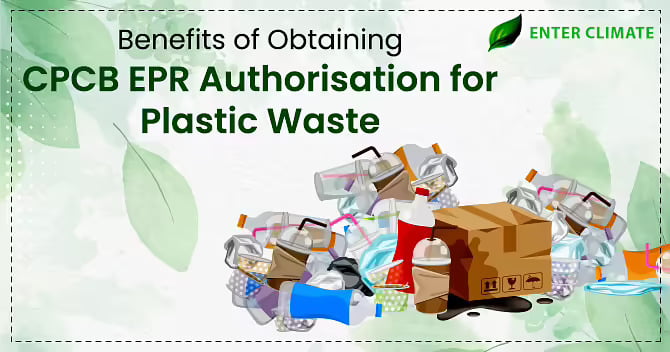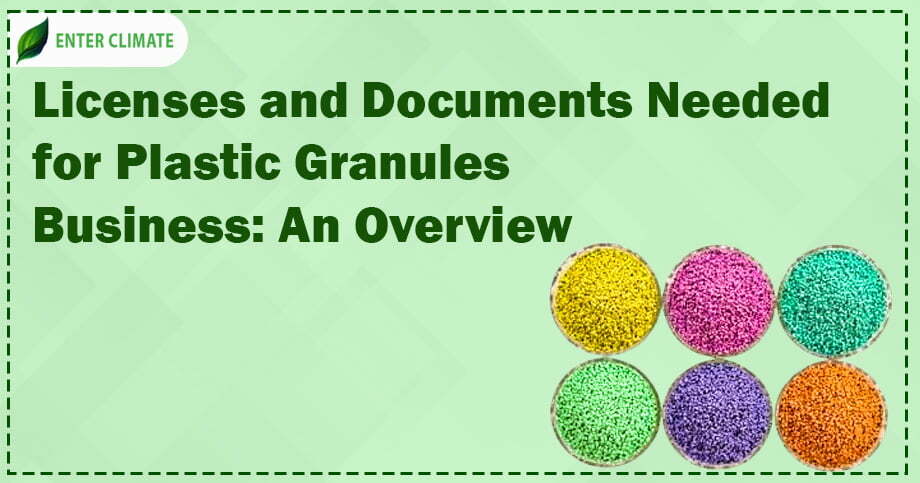Overview of the Legal Regulations for Setting up Plastic Injection Moulding Business
 05 Nov, 2022
05 Nov, 2022 
Just over 100 years ago, the first injection moulding machine was introduced as a means of mass production. The device was simple but effective, but since then, the innovation in the technology has led to changes in many aspects of the machine speed, fit and finish of the product and customizability of the machine to churn out products of different shapes and sizes. Injection moulding is a process of manufacturing that allows the production of plastic parts in large quantities. It is typically used as a mass-production technique for a whole plastic item or any plastic part/s of other products that are later assembled. Though the injection moulding process can also include materials like metals, glasses, elastomers etc., it is most commonly used with thermoplastic and thermosetting polymers. Many small and medium plastic injection moulding businesses in India today compete in a particular segment because of many factors like mass production of a specific product but limited due to machinery or infrastructure. It is also done to reduce the additional cost due to changes in product type.
Benefits of Using Plastic Injection Moulding
Low cost of production: though the initial cost of injection moulding machines and setting up the entire facility is somewhat costly, the price of production per piece is very low.
A broad range of products: a variety of plastic parts from syringes to parts of medical devices can be made using plastic moulding. This technique is widely used in various industries such as the medical industry (for bottling and packaging), electronics and electrical Industry, toy Industry, food and beverage packing industry, construction industry, and daily needed consumer products like buckets, drums, etc.
Less waste Generation: Injection moulding produces a very low amount of waste. As the entire process is mechanised, a minimal amount of waste can be ground back into pellet form and reused.
Repeatability: Plastic injection moulding is a repeatable process, and the product delivered is exactly similar. The first part can be the same as the hundredth, the thousandth, or more. If someone produces a large number of parts over the course of years, it is beneficial to have consistency and efficiency in the products, which further gives a business an advantage over other means of production. In contrast, any other production process may take different dyes or techniques altogether to make the same part. Also, the scope of variation in terms of colour, shape, design and size of the products is limitless.
Licences required to set up a plastic injection moulding business
Business Registration Certificate
Registering the plastic injection moulding business with appropriate authorities will help obtain subsequent authorisation and licences from different authorities like the CPCB and SPCB/PCC. The documents needed in this regard are
- Copy of PAN card
- Identity proof authorised by the government.
- Bank statements
- Utility bills such as mobile bills or gas bills, or electricity bills – not older than three months
- Passport size photograph
- Specimen signature of the Director
EPR Authorisation for Plastic Injection Moulding Business
If a manufacturer comes under the definition of the term “producer” under the Plastic Waste Management Rules, he/she will need an Extended Producer Responsibility (EPR) Authorisation from the CPCB. Documents required in this regard are
- GST certificate
- Importer Exporter Code (IEC)
- ownership documents of the site (rent or lease proof)
- Memorandum of Association
- EPR Action Plan
- Permission from the relevant Ministry/ Department (if needed) for selling the product.
- Copy of agreement with dealers, collection centres, recyclers, and plastic waste processors
- Copy of trade licence issued by Directorate General of Foreign Trade.
Consent NOC for Plastic Injection Moulding Business
The pollution caused by plastic injection moulding business aspects is regulated by the respective State Pollution Control Board, which issues them Consent to Establish (CTE)[1]. The manufacturer/producer must obtain the certificate before the manufacturing facility is instituted as per the Air Act and the Water Act. Before commencing the operation of the Injection Moulding Business, the second certificate, i.e. Consent to Operate (CTO), is issued by the same board only after a satisfactory site inspection.
Documents required for consent certificate
- Pan card
- SSI certificate
- Aadhaar card
- Industry Registration certificate
- Detailed project report
- Water usage breakdown
- Pollution control measures installed
- The layout plan/site plan
- Boiler type, fuel used, and quantity
- Flow diagram showing the sewage treatment plant
- Product/by-product list
- Specifics on air pollution controls units and their location
- Raw material list
- Consent from the state’s groundwater authority
- Factory/Trade License
Factory licence for Plastic Injection Moulding Business
The Plastic Injection Moulding Business must register the unit with local authorities as per section 6 of the Factories Act, 1948, as the facility falls under the definition of “factory”. Documents required for obtaining this licence will vary as per the state where the business is located. However, a standard list of documents required are
- filled and signed application form by the occupier and the manager
- Applicable application Fees
- Existing building plan
- List of Partners or Directors with their address
- NOC from partners or board resolution by directors for the nomination of the occupier as per sections 2(n) and 7 of the Factories Act, 1948.
- Proof of Occupier as Director/ Proprietor / Partner
- copy of the electricity bill (as Proof of sanctioned load of electricity)
- copy of rent agreement/ownership proof (As Proof of occupancy)
- Flow chart of the manufacturing process along with the list of raw materials used in manufacturing
- List of machinery installed or any other particulars the Chief Inspector/Director (ISH) may require.
Fire NOC for Plastic Injection Moulding Business
A fire certificate is granted by the concerned fire department of the respective state to ensure that commercial property is built with adequate fire-resistant measures. The standard documents needed are
- Building Plan Layout regarding the construction.
- Site Plan
- Inspection and Analysis report of the building
- Aadhaar card and PAN card of the applicant
- Approval letter Copy and Approved layout plan for each floor by competent Authority.
- Fire Plans (each floor) / Elevation Plan and Section Plan of Building.
- Ownership Documents like Lease Deed / Registry (Summarised copy) etc.
- Certificate of Fire Consultant Qualification
Udyog Aadhaar MSME Registration for Plastic Injection Moulding Business
If the owner of the Plastic Injection Moulding business wants to apply for Micro, Small, and Medium Enterprise (MSME) registration, he must fulfil all formalities via the online portal of the authority and upload the mandated documents.
Documents needed for MSME registration
- Applicant’s name
- Name and type of enterprise
- Aadhaar card
- PAN details
- The NIC code
- Account details
- The social category of the applicant
- business operations of the enterprise
- Date of incorporation
- Details related to employment
- GST Certificate
Market Analysis of the Plastic Injection Moulding Business
The India injection moulding machine market size was estimated at 0.73 billion US Dollars in 2021 and is projected to grow at a CAGR of 6.1% from 2022 to 2030. The dies and moulds market in India is segmented by end-user (automotive, construction, electronics, machine tools, and others) and application (casting, forging, and injection moulding). If we look at the end-user, the automotive segment will have a significant market share in this growth during the abovementioned forecast period.
Conclusion
Plastic moulded parts provide a solution for high volume and cost-efficiency. The recent trend of keeping parts lightweight and cheap without much joints is a desired feature for many products today, and the plastic injection moulding business ticks all the boxes. The growth of many industries spurs the demand for moulded parts, such as the automotive industry, where the day-to-day changes in design to enhance fuel efficiency by reducing the weights resulted in increased use of plastic moulded parts. If a solid business plan is met with proper guidance and assistance at the initiation and setup of such businesses, plastic injection moulding businesses will go a long way with the rising demand for plastic moulded components in medical device manufacturing.












